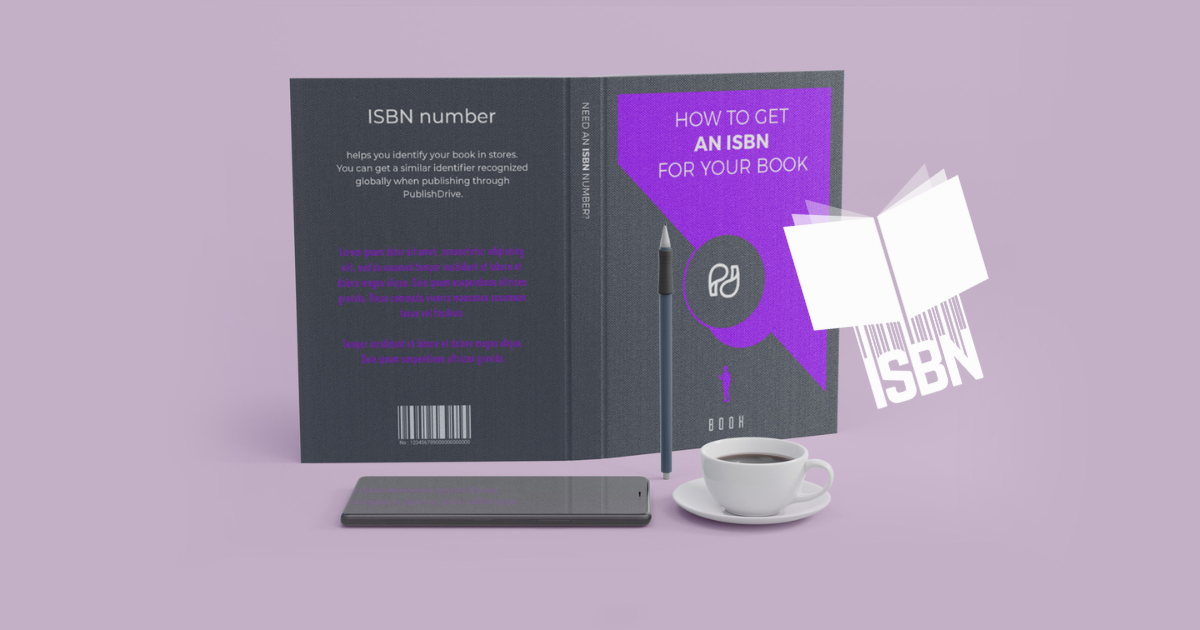How to Get an ISBN for Your Book

Every book has a unique identity in the publishing world, much like a fingerprint, called the International Standard Book Number (ISBN).
For authors, this seemingly cryptic code holds the key to cataloging, distribution, and discoverability.
But, getting an ISBN number as a self-published author can be expensive. Well, let’s see how authors can get a free ISBN.
This blog post goes over:
What Is an ISBN?
An ISBN, or International Standard Book Number, is a unique identifier for books, ebooks, and other published materials. It is a standardized way to catalog and manage books for libraries, booksellers, publishers, and distributors. Each ISBN consists of a series of digits that identify a specific edition or version of a book. ISBNs are used worldwide to facilitate the organization and sale of books, making tracking and managing them in databases and inventories easier.
ISBNs are typically either ten or 13-digit long, though they have transitioned to the 13-digit format as of January 1, 2007.
The ISBN provides essential information about the book, such as its title, author, publisher, and edition. Publishers or self-publishing authors obtain ISBNs for their books, and different ISBNs are assigned for different formats of the same book (e.g., hardcover, paperback, ebook).
Do I Need an ISBN Number?
When publishing a book, know if you need an ISBN or not.
Print books need an ISBN, and in some cases, even ebooks and audiobooks.
When do ebooks and audiobooks need ISBNs?
See the following scenarios:
1. Major retailer distribution
If you intend to sell your ebook on major online platforms like Amazon Kindle, Apple iBooks, Barnes & Noble Nook, or Google Play Books, having an ISBN is highly recommended. Many platforms require or strongly prefer ebooks to have ISBNs for proper cataloging and distribution.
2. Independent distribution
If you plan to distribute your ebook independently through your website or email list, you may not need an ISBN, especially if you're not concerned about wider distribution or library cataloging. Some authors choose not to use ISBNs for ebooks in these cases.
3. Library access
If you want your ebook to be available in libraries, having an ISBN is essential because some libraries use ISBNs for cataloging.
Why Does a Book Need an ISBN?
Your books need ISBN numbers for:
1. Identification
An ISBN uniquely identifies your book. It helps distinguish your book from millions of others in databases and catalog systems, making it easier for retailers, libraries, and readers to find and order your book.
2. Distribution
Many physical and online bookstores require books to have ISBNs before they will consider stocking or listing them for sale. If you want your book to reach a broader audience, having an ISBN can open doors to wider distribution.
3. Library cataloging
Libraries worldwide use ISBNs to catalog and organize their collections. An ISBN is essential if you want your book to be available to libraries.
4. Professionalism
An ISBN can add professionalism to your book, signaling to potential readers and industry professionals that your work is a legitimate, published piece of literature.
5. Metadata
ISBNs are associated with metadata about your book, including its title, author, publisher, and format. This metadata is important for retailers, libraries, and search engines to index and promote your book effectively.
How to Get an ISBN Number
Acquiring an ISBN number depends on your location. The International ISBN Agency gives out the registration identifiers to local authorities, who then decide what to do with them.
- In the United States and Australia, you can get a Bowker ISBN, costing around $125 to $250.
- In the UK, you can get an ISBN from Nielson, costing around £89 to £149.
- In other countries like Hungary, you can get ISBNs for free.
Contact your national ISBN agency to find out more.
A note about Bowker: If you choose to go through Bowker, consider buying ISBNs in bulk. Their pricing is skewed toward bulk orders, meaning favorable towards traditional publishers and against smaller presses and indies—a pack of 10 costs as much as three. You’ll need different identifiers if you publish in more formats or release more books in the future.
Alternatives to a Free ISBN Number
If your country doesn’t issue free ISBNs, there are other ways to get a free ISBN number. Platforms like Kindle Direct, CreateSpace, Lulu, and PublishDrive will give their unique identifiers for free if you use their publishing services. These are recognized in most stores.
PublishDrive offers other perks that include everything you need in self-publishing, from metadata to marketing support:
- Royalty management system
- Built-in marketing tools for featuring and promotional opportunities
- All three formats for multi-format book distribution
- Print-on-demand converter
- Print-on-demand cover template generator
- Free ebook converter
- As one of the only publishing companies that don’t take a commission, you keep 100% of your net royalties
- Sell your book in over 400 stores and 240K libraries